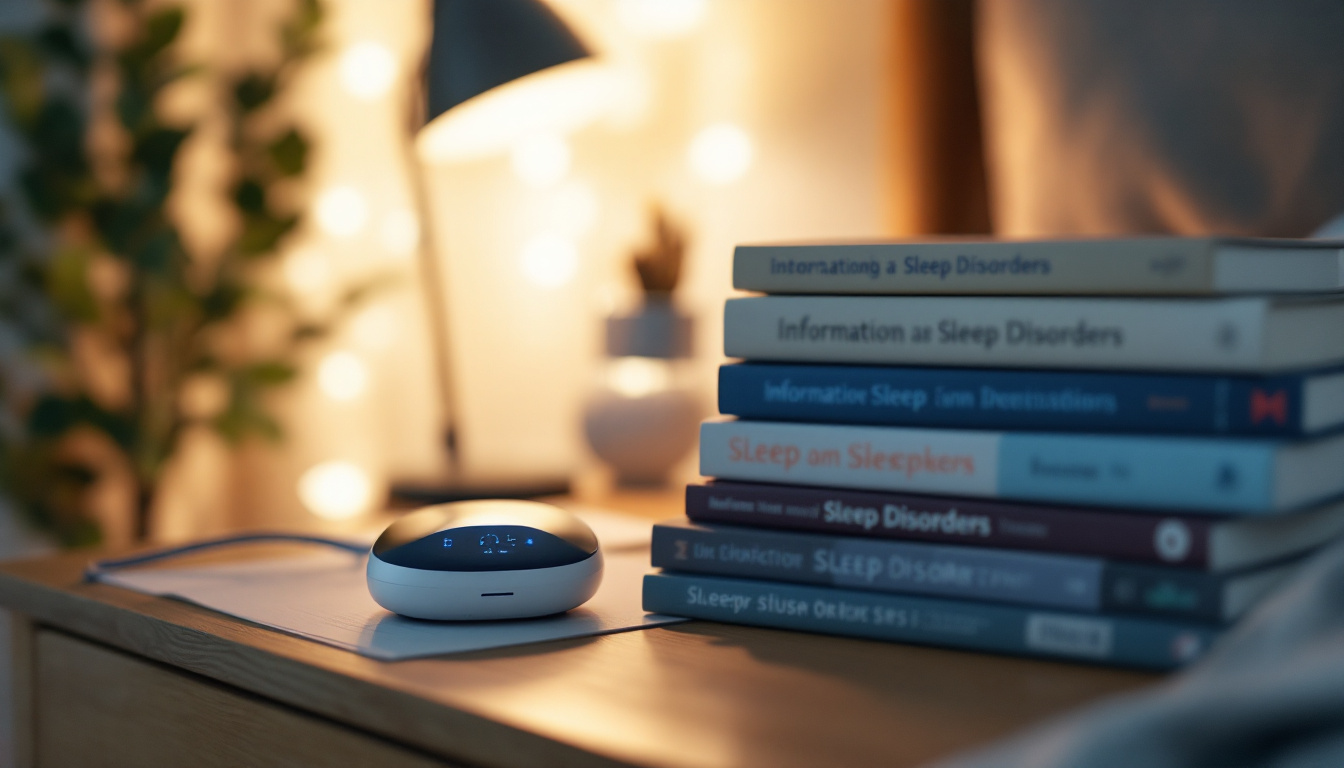In today’s fast-paced world, sleep often takes a back seat to our busy lives. Many people in Adelaide struggle with sleep-related issues, which can significantly impact their overall health and well-being. Fortunately, advancements in sleep medicine have led to the development of home sleep studies, providing a convenient and effective solution for those seeking to improve their sleep quality.
Understanding Sleep Disorders
Sleep disorders are more common than one might think, affecting millions of Australians. Conditions such as sleep apnoea, insomnia, and restless leg syndrome can disrupt sleep patterns and lead to a host of health problems, including fatigue, irritability, and even chronic diseases. The impact of these disorders can extend beyond the individual, affecting relationships, workplace productivity, and overall quality of life. As awareness of sleep disorders grows, so too does the importance of seeking appropriate treatment and support.
Home sleep study Adelaide represent a significant advancement in the field of sleep medicine, offering a convenient and effective solution for individuals in Adelaide seeking to improve their sleep quality. By understanding the importance of sleep, recognising the signs of sleep disorders, and utilising home sleep studies, individuals can take proactive steps towards better health and well-being.

Common Types of Sleep Disorders
Among the various sleep disorders, obstructive sleep apnoea (OSA) is particularly prevalent. OSA occurs when the muscles in the throat relax excessively during sleep, leading to blocked airways and interrupted breathing. This condition can result in poor sleep quality and daytime drowsiness. Individuals with OSA often experience loud snoring and may wake up gasping for air, which can contribute to a cycle of sleep deprivation and increased health risks, such as hypertension and heart disease.
Insomnia, on the other hand, is characterised by difficulty falling asleep or staying asleep. It can stem from various factors, including stress, anxiety, or underlying medical conditions. Insomnia can be acute, lasting a few days or weeks, or chronic, persisting for months or even years. The psychological toll of insomnia can be significant, leading to increased anxiety and a decreased ability to cope with daily challenges. Restless leg syndrome, a lesser-known disorder, involves uncomfortable sensations in the legs, often leading to an irresistible urge to move them, which can severely disrupt sleep. This condition can be particularly distressing, as it often manifests in the evening or at night, making it difficult for individuals to settle down and enjoy restful sleep.
Read about sleep apnea test at: Sleep Apnea Test in Adelaide Early Detection and Affordable Options
The Importance of Sleep
Quality sleep is essential for maintaining good health. It plays a crucial role in cognitive function, emotional regulation, and physical health. During sleep, the body undergoes vital processes such as tissue repair, muscle growth, and the consolidation of memories. Chronic sleep deprivation can lead to serious health issues, including obesity, diabetes, cardiovascular diseases, and mental health disorders. Furthermore, a lack of sleep can impair judgement and reaction times, increasing the risk of accidents and injuries. Therefore, addressing sleep problems is vital for overall well-being. It is important for individuals to recognise the signs of sleep disorders and seek professional help, as early intervention can lead to more effective treatment and improved quality of life.
The Role of Home Sleep Studies
Home sleep studies have emerged as a practical alternative to traditional sleep laboratory studies. They allow individuals to monitor their sleep patterns in the comfort of their own homes, making the process less intimidating and more accessible.
How Home Sleep Studies Work
During a home sleep study, patients are provided with a portable monitoring device that tracks various physiological parameters while they sleep. These parameters typically include airflow, oxygen levels, heart rate, and movement. The data collected is then analysed by sleep specialists to diagnose any potential sleep disorders. Learn more about oxygen at http://bazekon.icm.edu.pl/bazekon/element/bwmeta1.element.ekon-element-000171628694
One of the significant advantages of home sleep studies is their simplicity. Patients can set up the equipment themselves, eliminating the need for overnight stays in a sleep clinic. This convenience encourages more people to seek help for their sleep issues, ultimately leading to better health outcomes.
Who Should Consider a Home Sleep Study?
Home sleep studies are particularly beneficial for individuals who exhibit symptoms of sleep disorders, such as loud snoring, gasping for air during sleep, excessive daytime sleepiness, or difficulty concentrating. Additionally, those who have previously undergone a sleep study in a clinical setting may prefer the comfort and convenience of a home-based assessment.
Moreover, home sleep studies are often more cost-effective than traditional sleep studies, making them an attractive option for many individuals. They can be a first step in diagnosing sleep disorders, allowing healthcare providers to determine the most appropriate treatment options.
Benefits of Home Sleep Studies
Choosing a home sleep study over a traditional sleep study offers numerous advantages. Understanding these benefits can help individuals make informed decisions about their sleep health.
Convenience and Comfort
One of the most significant benefits of home sleep studies is the convenience they offer. Patients can sleep in their own beds, surrounded by familiar surroundings, which can lead to more accurate results. The comfort of home can alleviate anxiety that some individuals may experience in a clinical setting.
Furthermore, the ability to conduct the study at home allows for greater flexibility in scheduling. Patients can choose a night that works best for them, ensuring they are well-rested and ready for the assessment.

Comprehensive Data Collection
Home sleep studies are designed to collect comprehensive data on an individual’s sleep patterns. The portable devices used in these studies are equipped with advanced technology to monitor various aspects of sleep, providing valuable insights into the patient’s sleep health.
This detailed data can help healthcare providers identify specific sleep disorders and tailor treatment plans accordingly. The ability to analyse sleep data over an extended period can also provide a clearer picture of an individual’s sleep patterns, leading to more accurate diagnoses.
Interpreting the Results
Once the home sleep study is complete, the collected data is analysed by a qualified sleep specialist. Understanding the results is crucial for determining the next steps in managing any identified sleep disorders.
What to Expect from the Results
The results of a home sleep study typically include information on the number of apnoeas or hypopnoeas (shallow breathing) experienced during the night, oxygen saturation levels, and overall sleep quality. Based on these findings, the sleep specialist can diagnose conditions such as obstructive sleep apnoea or other sleep-related issues.
In some cases, the results may indicate the need for further testing or a referral to a specialist for additional evaluation. It is essential for patients to discuss their results with their healthcare provider to understand the implications and explore potential treatment options. Click here to find more about evaluation.
Next Steps After Diagnosis
Upon receiving a diagnosis, patients can work with their healthcare providers to develop a personalised treatment plan. This plan may include lifestyle changes, the use of continuous positive airway pressure (CPAP) therapy for sleep apnoea, or other interventions tailored to the individual’s needs.
Ongoing follow-up and monitoring are often necessary to ensure the effectiveness of the treatment plan. Regular check-ins with healthcare providers can help track progress and make any necessary adjustments to improve sleep quality.
Finding a Provider for Home Sleep Studies in Adelaide
For those considering a home sleep study in Adelaide, finding a reputable provider is essential. Several clinics and healthcare facilities offer these services, each with its own approach and technology.
What to Look for in a Provider
When selecting a provider for a home sleep study, it is crucial to consider several factors. Look for a facility with qualified sleep specialists who have experience in diagnosing and treating sleep disorders. Additionally, check for accreditation from relevant medical boards or associations, as this can indicate a commitment to quality care.
Patient reviews and testimonials can also provide valuable insights into the experiences of others who have undergone home sleep studies at the facility. A provider that prioritises patient comfort and satisfaction is likely to deliver a positive experience.
Consultation and Preparation
Before undergoing a home sleep study, patients typically have a consultation with a sleep specialist. During this appointment, individuals can discuss their symptoms, medical history, and any concerns they may have about the study. This consultation is an excellent opportunity to ask questions and gain a better understanding of the process.
Preparation for the study may involve specific instructions regarding medication, alcohol consumption, and sleep hygiene practices. Following these guidelines can help ensure accurate results and a successful assessment.
Conclusion
With the right support and resources, achieving restful sleep is within reach. For those struggling with sleep issues, exploring the option of a home sleep study could be the first step towards reclaiming a good night’s sleep and enhancing overall quality of life.

